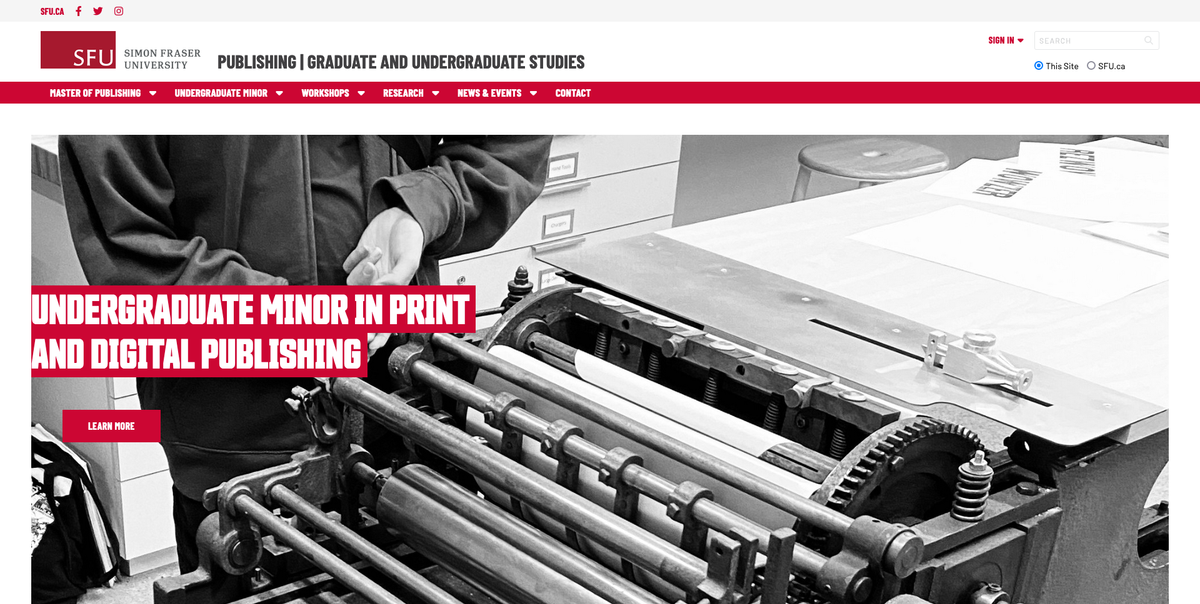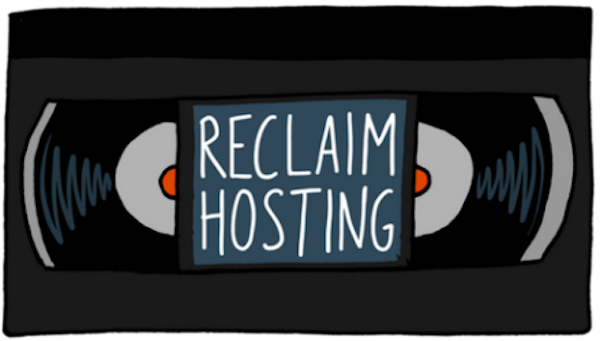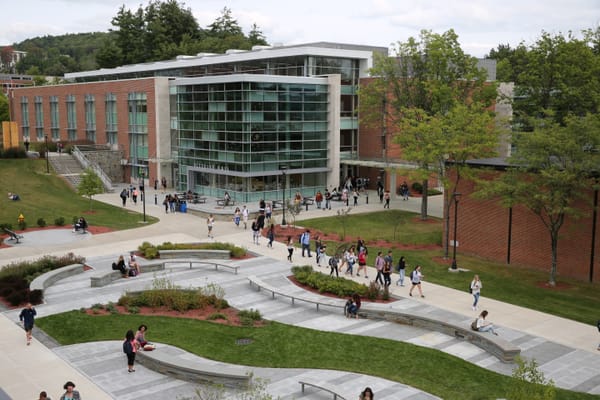Simon Fraser University Bulk Shared Hosting: A Reclaim Case Study
Suzanne Norman, Faculty of Communication, Art and Technology at Simon Fraser University (SFU), and Lecturer and Industry Liaison, and Director of SFU Publishing Workshops, shares why and how she helps her students get their own space online with Reclaim Hosting.

Interviewee: Suzanne Norman
Institution: Simon Fraser University
Hosting setup: Bulk Shared Hosting
Number of students: 50-80
Discipline: Publishing
Application: WordPress
Suzanne Norman, Faculty of Communication, Art and Technology at Simon Fraser University (SFU), and Lecturer and Industry Liaison, and Director of SFU Publishing Workshops, shares why and how she helps her students get their own space online with Reclaim Hosting.
Suzanne recalls that back in 2012 and 2013, "We were looking at ways people are publishing themselves online... So [we] created a course called 'The Publication of Self in Everyday Life' (PUB 101)" in which students could develop their "personal cyber infrastructures." It was very important to the course that the space for these students could exist outside of SFU, so that the students could exercise maximum agency, as well as seamlessly transition their web space away from the course once it was over. Using Reclaim Hosting to get students their own hosting and domain names not only provides students with that ownership over their space and content, but also helps them feel supported in "the real world" as they're able to connect with Reclaim's Support agents.
While the course is structured for students to post on a specific theme each week, the main goal of the course is for students to "do the work" and be active in the space they've created. Working in the open is another core concept of the course, so students can understand the reactions and things that happen in a public, digital space, are prepared to defend themselves and answer questions, and combat dis/mis-information. Ideally, students would do this work under their real names in order to participate in authentic digital citizenship, although there have been scenarios in which anonymity/pseudonyms are necessary.
Ultimately, this course is truly something that belongs to the students; their interests and their real-life circumstances directly influence what this course teaches and evaluates. This is what we, at Reclaim, call "excellent!"
Key takeaways:
● Balancing "working in the open" with privacy
The course emphasizes the importance of students using their own names when working online to promote authentic digital citizenship, but sometimes this really isn't feasible for some students.
Example: A student who wasn't out to friends and family wanted to create an online resource for LGBTQ+ high school students, given his own negative/confusing experience with his own sexuality in high school. In this case, a pseudonym was the best solution for this student, and actually gave him the agency to make the kind of web space he wanted unabashedly, which was the ultimate goal of the course.
● Balancing agency with support
Agency is central to this course; students can feel free to publish what they'd like without it being directly tied to SFU. However, great power comes with great responsibility, and sometimes not having the university to stand behind when issues arise can make that power somewhat unappealing. But, working with Reclaim Hosting's support helped fill some of that gap.
Example: A student wanted to republish a recipe from elsewhere online and followed best practice, reaching out to the original poster, mentioning them in her repost, and changing the method a bit prior to posting. Once the repost was up, the original poster sent her an invoice for $1500 for using the recipe. Fortunately, the copyright lawyer they work with assured the student that she was under no obligation to pay that invoice. From there the class developed a robust copyright and intellectual property portion of the curriculum.
● Empowering Indigenous voices on the open web
In the Spring 2023 semester, the PUB 101 course was brought into SFU's bridge program for Indigenous students, the Indigenous University Preparation Pathway (IUPP). This inclusion worked to combat "the long-standing subjugation of and indifference to Indigenous publishing in Canada" (Suzanne Norman, Conversations with Indigenous Students: Mercy La Bossiere) by putting modern digital publishing tools directly into the hands of indigenous students.
Examples:
Do you have a project you'd like to chat with us about and see featured on our blog? Reach out and let us know!





